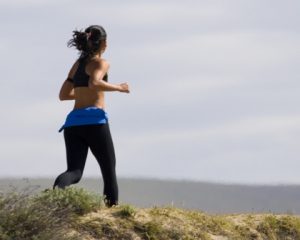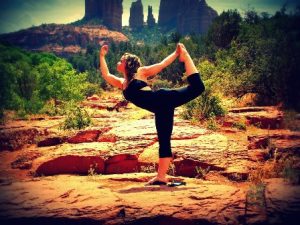 Here are 4 natural ways to stop feeling anxious. Some of them you might find a little unusual, especially in this day and age when our first thought is to ‘pop a pill’ to combat feelings of anxiety.
Here are 4 natural ways to stop feeling anxious. Some of them you might find a little unusual, especially in this day and age when our first thought is to ‘pop a pill’ to combat feelings of anxiety.
But if you’re having problems with anxiety please give them a try – they’re all completely free, and they’re designed to work in total harmony with your body – so what have you got to lose?
4 natural ways to stop feeling anxious
1. Just Breathe
Did you know that your breath is one of the most empowering, relaxing, and HEALING things that you possess? And yet most of us completely ignore the whole process of breathing. As a consequence, the majority of people are breathing in the completely incorrect way. We take shallow, weak little breaths, and this has a huge affect on our overall health and well-being.
Take back your power and oxygenate your body.
Sit (or stand) up straight, and consciously direct your attention to your breathing. Breathe in deeply through your nostrils and send this breath right down into the depths of your lungs.
Are your shoulders moving as you breathe? Then try to keep them still – it should be your abdomen that is moving and adjusting itself to allow for the extra intake of air – not the upper part of your body. Then exhale the breath slowly and consciously. Keep breathing out until you feel your lungs are empty. You might even wish to engage your abdominal muscles to further squeeze out any stale air (this is a good way to tone your abs, too).
So, next time you feel anxious, direct your attention to your breathing. Is your breath feeling quick and shallow? If it is, repeat the above exercise in conscious breathing until you feel your breathing start to slow down.
As you breathe in, say to yourself: ‘I breathe in peace’. As you breathe out, say: ‘I breathe out fear’.
2. Get out there and get moving
Exercise – particularly aerobic exercise performed outdoors – is another excellent way of oxygenating your body, clearing your head, and shaking off any unwanted fearful and anxious thoughts. You don’t have to spend money joining fancy gyms or going to the latest fad exercise class – simply get yourself up and moving in any way possible.
Today’s stressful world generates a lot of ‘fight or flight’ response in our bodies, and the problem is we never get the chance to either fight or flee! More often we are left clenching our teeth and swallowing back our emotions.
So take every opportunity you can to work off all that unnecessary adrenalin that has been produced as a by-product of stress and anxiety. Make sure you take advantage of any natural areas nearby you, such as a park or local woods; that way you will be breathing in fresh healthy oxygen rather than stale air-conditioned air.
If you can’t see yourself dressed in full-on running gear, tearing up and down your street like Usain Bolt, then that’s perfectly fine! You don’t have to go for a full-on run if you don’t feel up to it. The main thing is getting out there, BREATHING, and changing your state. If you feel embarrased or unsafe going for a walk on your own, then team up with a pal, or borrow a dog – they are always very happy to get out and about!
Perhaps cycling is more your thing, or joining a netball team, or learning to dance… etc, etc… there are so many ways to make exercise a regular part of your life, and you can turn it into a social activity if that suits you – just be creative and find a way to make it work for YOU. You’ll be surprised at the new lease of life it gives you.
3. Stretch to de-stress
Yoga is such a perfect form of exercise for people who suffer from anxiety that I felt it deserved its own category. It is a lovely gentle exercise that helps you learn how to breathe correctly, adopt good posture, and is also surprisingly strengthening to the body.
There are many different types of Yoga to suit your own preference, from relaxing Hatha Yoga to more strenuous types such as Ashtanga Yoga. So don’t be fooled into thinking it’s all ‘sitting around with your legs crossed’ – there are a wide variety of styles.
No matter what kind of Yoga you choose, you will finish each session with a blissful sense of deep relaxation and a feeling of peaceful unity in your mind and body. Look for a good local class, or even check out some YouTube videos if you’d like to try it for free.
4. Relax the body, and the mind will follow
The next time you’re feeling anxious, pay attention to how you are holding your body. Are your shoulders hunched and tight? Is your neck strained? Are your hands clenched into a fist?
There are many ways our bodies translate our emotions, and it is often easy to see the kind of emotional state somebody is in by a quick glance at their body language. Once you are aware of your own physical state then you can consciously change it.
Relaxing your body and changing your posture is a surprisingly effective way to change your emotional state of mind. If you’re thinking, ‘What difference does it make what position my body is in?’ – just try this little exercise next time you notice yourself getting anxious:
Become aware of how you are sitting, or standing. Straighten your back and sit or stand upright. Notice the area around your shoulders and neck. Is it tense? Let all that tension go, let your shoulders drop down, and really relax that part of the body. Use your breath to help you: imagine yourself releasing a little bit more tension with each exhalation.
Now let that feeling of relaxation travel from your shoulders down your arms, into your hands, and right into your fingertips. Totally relax the hands. Now, how do you feel? Has your anxiety lessened at all? It’s quite remarkable how physical relaxation can calm our anxious minds.
Now, I’m not saying you can change the situation that is making you anxious, just by doing a few simple posture adjustments. There are many very real things in life that cause us anxiety, that we have no control over, no matter what. But what we DO have control over is how we react to those situations. We can learn how to control our thoughts, rather than have our thoughts control us.
I hope you find these natural techniques helpful. I will be following up with more techniques in the future, so keep an eye on my blog. And if you feel the need for further 1-to-1 help in beating anxiety, get in touch to book a session with me. You can see me in person at my practice in Glasgow, or via Skype / telephone.



Leave a Reply